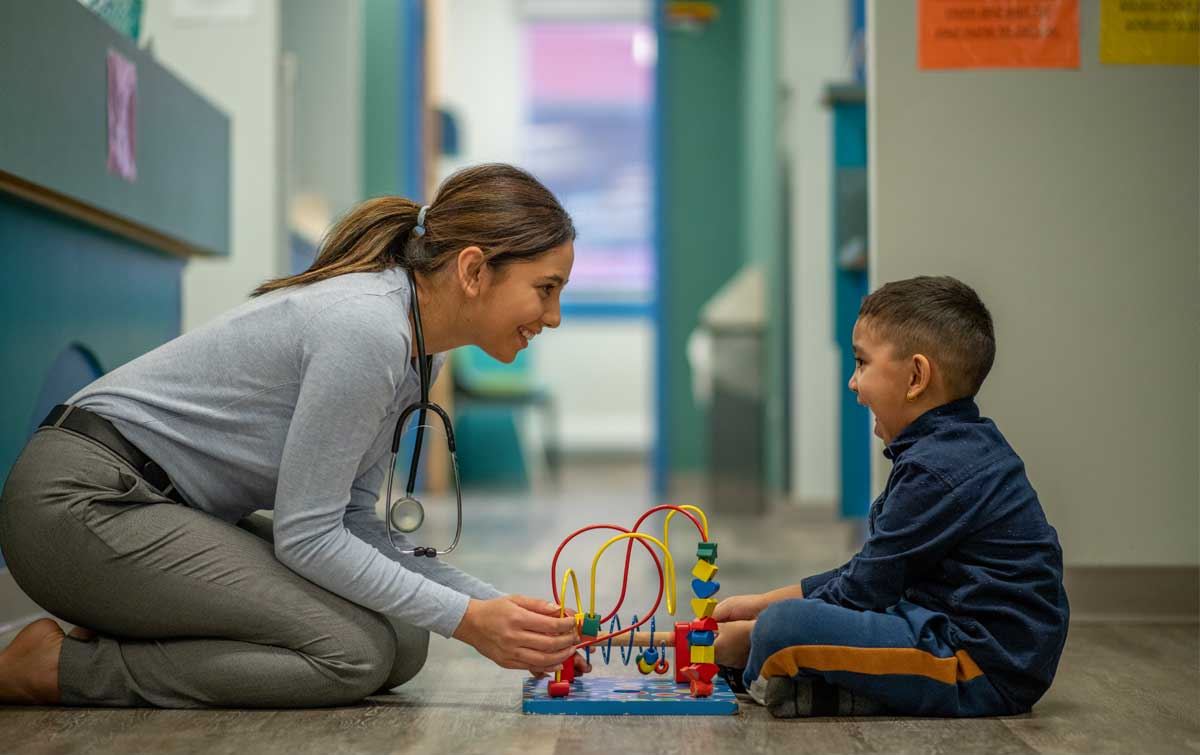|
|
How To: Preparing for Evaluation and Diagnosis
You’ve explored all the options, found the best provider for your family and put a date on the calendar. But while you wait, putting some time into preparation can help you make the most of your child’s evaluation appointment. This guide covers three steps you can take to prepare for an evaluation. It also gives tips to help you through a diagnosis meeting after the evaluation. | Diagnosing ProfessionalsThe type of provider your child will see for evaluation and diagnosis will depend on your concern. For example, mental health providers (like psychologists, clinical counselors and social workers) can evaluate and diagnose a variety of mental-health related concerns, from anxiety and depression to learning disabilities or attention issues. Some concerns are best evaluated by professionals with a medical background. These types of professionals include developmental pediatricians, neuropsychologists and specialty therapists (occupational therapists, physical therapists, speech therapists). If you are having trouble deciding which type of professional is best for your child, it’s a good idea to have a conversation with your child’s primary care provider. |
Preparing for an Evaluation
Managing PaymentPaying for an evaluation can be tricky. As you prepare for your child's appointment, it's a good idea to check insurance coverage and understand charges. The guide to Finding Funding can also help families find money for out-of-pocket costs. Keeping TrackThe Connecting for Kids guide on How to Communicate Effectively with School includes information on how to create a school communication binder. This tool can help families manage information from school. It also includes free binder sheets to help you keep track of milestones, medications and more. |
What are "Diagnostic Criteria?"Diagnostic criteria are lists of symptoms that are used to identify a diagnosis. For example, if you have a runny nose, feel achy and have a sore throat – but do not have a fever – you’d probably think you have a cold. Mental health and medical professionals use the same type of process to diagnose concerns about a child. The symptoms used to make a diagnosis are standardized in reference books, like the Diagnostic and Statistical Manual of Mental Disorders (DSM). |
Social StoriesSocial stories are tools you can use to help prepare your child for a new experience (see examples here and here). These short stories use pictures and/or simple sentences to tell children what will happen and how they should act. The provider doing your child’s evaluation may have a social story you can use or you can make one yourself. |
Getting A Diagnosis
Even when families can guess what the diagnosis will be, it can be hard to hear how your child is struggling. It can help to look at what a diagnosis does and doesn’t do:
In many cases, a new diagnosis comes with a list of follow-up tasks. It’s easy to get burned out by trying to do everything at once – especially when you’re trying to learn about the diagnosis at the same time. The provider who evaluated your child or your child’s primary care provider can help you to prioritize and choose what’s right for your child. | Educational DesignationWhen you work with a diagnosing professional, your child may receive a “medical diagnosis.” A medical diagnosis is sometimes used to help with the school evaluation process, but it is not the same as an educational designation (sometimes called an “educational” or “academic diagnosis”). For more information on the differences between medical and academic diagnoses, see the frequently asked questions section in the School Resource Guide. |
Telling Your ChildTelling your child about a diagnosis is a decision that each family has to make for itself. Some children are not ready to learn about diagnosis specifics, while others can benefit from knowing the reason that some things are hard. We recommend finding and listening to adults with the same diagnosis. Many of these adults have written about what they would have liked to know – or what the information means to them. You can also look for organizations who serve people with the same diagnosis or ask your local children’s librarian to help you find books with characters who have the same diagnosis as your child. | Learning MoreAfter a new diagnosis, many families spend time researching and reading more about it. Sifting through information and finding reliable resources can be challenging, but you don’t have to do it alone! Connecting for Kids Family Resource Specialists (FRS) can help you get started with a free Ask Us! call. Learn more about Ask Us! or reserve a time. |
Frequently Asked Questions
Click the questions below to find answers.
▸ What if I disagree?
In many cases, a professional diagnosis creates a pathway to treatment and support. But when the pathway or the diagnosis aren’t clear, it may be time to get a second opinion. It’s important to remember that your child’s provider is a professional and their goal is to provide the best care – in fact, some providers may prefer a second opinion from someone with more specialized knowledge or experience. TIP: Before seeking a second opinion, you should always check your healthcare coverage. Some evaluations may not be covered more than once per year. ▸ What if my child has an “off day” for the evaluation?
Children can be unpredictable, and it’s not uncommon for them to have a bad day on the day of an evaluation – or worse, not show any challenges at all. It’s important to remember that observation is only one part of the evaluation process. Providers who work with children use many other types of information to make a diagnosis – from parent rating scales and interviews to reports from school or daycare providers. If you are worried about your child’s concerns not being seen during the evaluation, it can also help to take some short videos to share with the diagnosing provider. This can help the provider see what day-to-day life is like for you and your child. |




